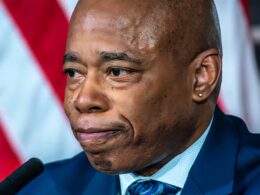The proposed reform by the Taiwo Oyedele-led panel, which includes shifting to a derivation-based VAT model, has intensified ongoing debates about resource control and revenue distribution.
Kaduna, Nigeria – Nineteen northern Nigerian state governors, under the Northern States Governors’ Forum (NSGF), have firmly rejected President Bola Tinubu’s proposed shift to a derivation-based model for Value Added Tax (VAT) distribution.
The governors argued that the proposal, part of the recent Tax Reform Bill presented to the National Assembly, would disadvantage northern and other less industrial regions.
At a strategic meeting in Kaduna on Monday, attended by northern traditional rulers, the Chief of Defence Staff, General Christopher Musa, and other stakeholders, the governors voiced concerns over the reform’s impact on regional equity. The forum’s chairman, Gombe State Governor Muhammad Yahaya, presented a communique emphasizing the need for equitable policy implementation across all geopolitical zones.
According to the communique, the governors argued that VAT is currently remitted based on company headquarters’ locations rather than where goods and services are consumed, a system that already creates disparities in revenue distribution from the Federal Accounts Allocation Committee (FAAC). The proposed derivation-based model, they contend, would further marginalize the North and other less industrialized regions.
The communique stated, “The forum notes with dismay the content of the recent Tax Reform Bill forwarded to the National Assembly. The reforms go against the interests of the North and other sub-national regions, particularly the proposed shift in VAT distribution to a derivation-based model.”
Highlighting their opposition, the NSGF urged members of the National Assembly to reject any policy that could harm northern interests or limit equitable revenue distribution. “The Northern Governors’ Forum is not averse to policies promoting national growth and development. However, we insist on fairness in implementing national policies to prevent the marginalization of any geopolitical zone.”
The governors also addressed the ongoing economic challenges across the country, urging citizens to remain calm and reassuring that both state and federal authorities are working on measures to ease the current hardships.
The proposed reform by the Taiwo Oyedele-led panel, which includes shifting to a derivation-based VAT model, has intensified ongoing debates about resource control and revenue distribution. Many northern states, where Sharia law restricts alcohol sales, still receive VAT from alcohol sales, raising questions about the fairness of the current model










Join our Channel...